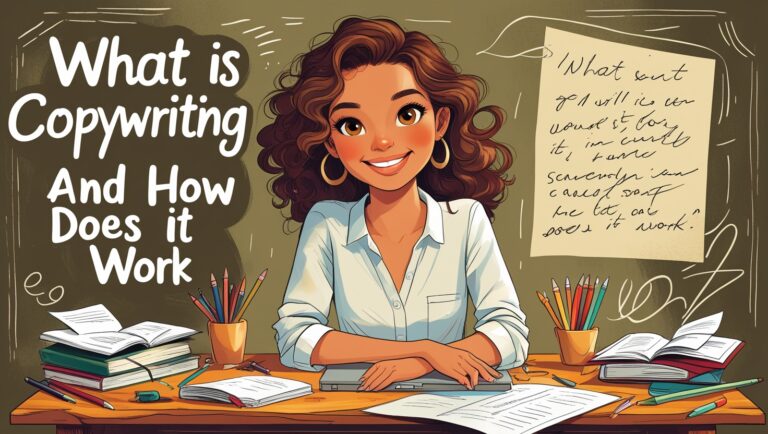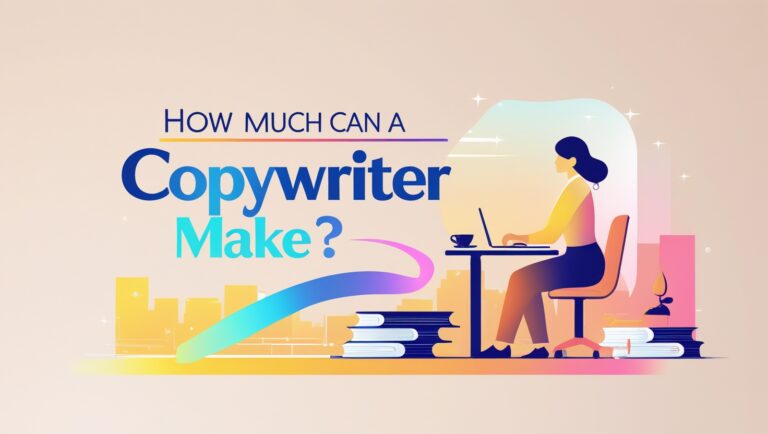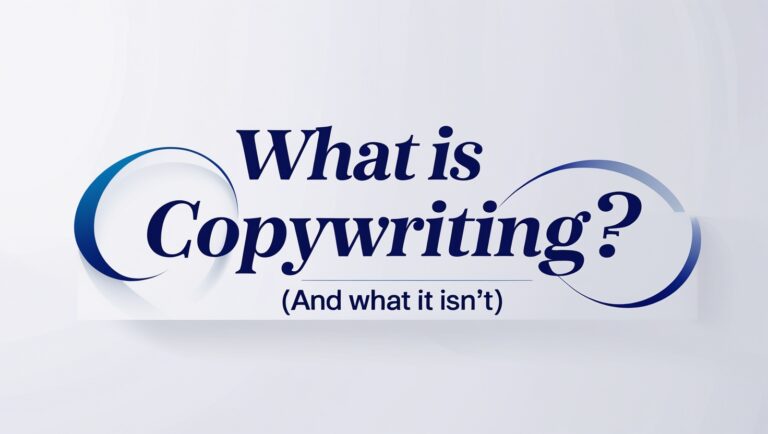No Degree? Awesome! The Shocking Truth About Copywriting
Introduction
Do you need a degree to be a copywriter?
No, you do not.
This article will show you exactly what you need—and what you do not—to become a successful copywriter.
Many professional copywriters did not start out as brilliant writers, and that is perfectly fine. You can learn everything from the ground up.
Right now, you are in the greatest era of human history for self-education. Learning new skills is more accessible than ever.
The question is: will you seize this opportunity?
Information alone is useless unless you act on it. Will you?
Furthermore, you will discover multiple ways to build a strong writing foundation. You will also learn how to tap into marketing, psychology, and storytelling principles to make your words sell.
It does not matter where you are right now.
- Still in school? That is great.
- Switching careers? Also great.
- Retired and looking for a new challenge? Why not?
You can start anywhere, at any point, with any level of experience, and still make your mark. The only real requirement is that you can learn and improve.
By the end of this article, you will know exactly what you need to do and how to do it.
Ready to dive deeper?
Let us go.
Do You Really Need a Formal Degree?
Let us tackle the million-dollar question:
Do you need a bachelor’s or master’s degree to become a copywriter?
No, you do not.
Some of the most successful freelance copywriters, in-house copywriters, and agency writers never stepped foot in a writing or marketing program. What truly matters in this industry is your skill set, your ability to persuade, and your knack for engaging different audiences.
Of course, having a degree in English, marketing, or communications can help. It can teach you core marketing strategies or sharpen your grammar and composition skills. But if that is not an option, or if you simply prefer a faster route, do not worry—you still have countless opportunities to learn.
Your work will speak louder than any diploma ever could.
How Far Can Self-Education Take You?
The short answer:
A very long way.
You live in a golden age of resources. Online courses, video tutorials, and mentorship programs are just a few clicks away. If you are dedicated, you can learn at your own pace, without the pressure of taking on student loans or following a strict college curriculum.
Think about it like this:
- Specialized Bootcamps: Rapid skill acquisition in a short window.
- Online Courses: Often self-paced, laser-focused on copywriting.
- Free Content: Blogs, podcasts, and YouTube channels galore.
It is all there for the taking. All you need is a willingness to put in the time and practice what you learn. As you build your knowledge of consumer behavior and marketing strategies, you will see your writing transform.
Essential Skills Every Copywriter Must Master
You might be asking:
What exactly do I need to learn?
Let us break it down into the core competencies that define an effective copywriter.
1. Persuasive Writing
You are not just putting words on a page. You are guiding the reader to a specific action—sign up, buy, or simply believe in an idea.
The trick is learning how to shift perspectives. Understand the reader’s pain points. Write directly to them. Instill confidence and urgency. That is how copy converts.
2. Target Audience Awareness
Who are you speaking to?
How do they think?
What do they value?
Get these questions right, and your writing becomes powerful. Whether you are crafting blog posts, landing pages, or social media ads, the key is matching your tone and message to the exact demographic you aim to reach.
3. Understanding Marketing Fundamentals
Copywriting is tightly woven into the fabric of marketing campaigns. That is why a solid grasp of branding, positioning, and consumer psychology makes a massive difference.
You do not need a four-year marketing degree to achieve this. Reading reputable industry blogs or taking digital marketing courses can teach you the basics faster than any traditional program.
4. Research Skills
Good research sets you apart. It is not just about scanning Google for quick answers. You want to dig into credible sources, industry data, and customer feedback.
When your writing is backed by solid evidence, you build trust. Trust is what convinces readers to follow through on your call to action.
5. Adaptability for Different Formats
One day, you might write a sales page. The next, you are writing social media copy. Then, you are churning out press releases or an email newsletter. Each medium demands a different tone and approach.
The more versatile you are, the more valuable you become to potential clients or employers. That is how you stay in high demand.
Degrees That Can Help (If You Want Them)
No, a degree is not a must.
But if you do want one, here are some common degrees that align well with copywriting:
- English: Great for honing creative writing skills and mastering language.
- Marketing: Ideal for learning consumer behavior, marketing campaigns, and brand positioning.
- Communications: Teaches you to excel in public relations, digital media, and organizational messaging.
Each offers its own advantage. If you thrive in a structured environment, or if you have the resources and time, a formal degree can be a valuable asset.
However, keep this in mind:
Your copywriting portfolio and ability to solve real marketing problems will almost always overshadow your diploma. If you do not have a degree, do not sweat it.
Master’s Degree or Advanced Studies?
For those aiming to climb the corporate ladder—maybe a creative director role or a marketing manager position—a master’s degree can open specialized opportunities. Some fields appreciate advanced qualifications, especially in highly regulated or technical industries.
Still, a master’s degree does not guarantee success. Ultimately, clients and employers want results. If your copy sells, your email marketing campaigns convert, or your social media posts gain traction, that proof often outweighs a fancy title.
Practical Ways to Build Your Portfolio

It can feel daunting to prove your skills when you are starting out. But there is a simple way around that:
Build a portfolio that shows off your writing.
Yes, you read that right.
Even if you have not worked with a single client yet, you can create sample pieces. These are called “spec ads” or “mock projects.” They highlight your ability to craft convincing copy for hypothetical products or services.
Steps to do it right:
- Pick a Brand You Love: Write a sales letter, a social media post, or a short email as if you are working for them.
- Show Range: Prove your adaptability. Vary your tone, format, and the audience you write for.
- Keep It Professional: Carefully edit your copy. Polish it until you feel confident putting it out there.
Another route?
Offer your writing services to a local nonprofit or small business. Let them know you are building your portfolio. You gain real-life experience, and they gain a valuable service.
While the image above shows a physical portfolio, these days, you’ll likely lean far more (in most cases) towards having a portfolio website. Somewhere they are a client at any time can see your work and find out more about you.
Freelancing: Your Fast Track to Real-World Experience
One of the quickest ways to sharpen your copywriting skills is to jump into freelancing. Sure, it might feel a bit scary at first—cold pitching clients, facing rejection, managing deadlines—but the experience is unmatched.
Why freelancing?
- Versatility: You can try your hand at various niches. Tech, healthcare, lifestyle—go wherever your interests lead.
- Skill Acceleration: Working with different clients forces you to adapt quickly. This is how you grow.
- Portfolio Building: Each completed project is proof of your abilities, boosting your credibility for the next gig.
You will learn the realities of marketing campaigns, how to communicate with stakeholders, and what deadlines truly feel like. That kind of hands-on training is priceless.
Branding Yourself in a Crowded Market
Standing out as a copywriter can feel overwhelming. But it does not have to be. The key is this:
Focus on what makes you unique.
1. Find Your Niche
Specialize in an area you love, like B2B software, fitness, or personal development. Being a generalist can work, but niche expertise puts you on a faster track to authority and higher rates.
Don’t rush to specialize; you don’t know what you’re best at yet or where the work is plentiful or dry. Take your time, and you don’t even have to niche at all.
2. Build Your Online Presence
A personal website or a well-maintained LinkedIn profile can do wonders. Showcase your portfolio, share marketing insights, and let the world know what you are all about. Invite people to see your work, not just your resume.
X (twitter) is another great option here for building a following and garnering attention.
3. Stay Updated
The marketing world changes fast. Read industry news, subscribe to thought leaders, and explore new platforms. If you are always on top of trends, your copy will reflect cutting-edge insights. That is how you keep winning new projects.
Results will always speak for themselves, help people to win, and you win, too.
Copywriter Education Requirements: The Step-by-Step Roadmap
What if you want a clear, structured approach? Here it is:
- Assess Your Current Skills: Get honest about what you do well and where you struggle.
- Study or Self-Study: Pick a path—formal education, online courses, or a mix.
- Practice, Practice, Practice: Write daily. Even short exercises help. Build a following on X, start a blog.
- Build Your Portfolio: Mock projects, volunteer work, or small paid gigs—anything that proves your skills.
- Network: Join writing groups, attend webinars, and connect with other writers or marketing professionals.
- Refine Continuously: Every piece of feedback is gold. Use it to polish your writing style.
- Pitch and Apply: Whether you go freelance or apply at a marketing agency, start putting yourself out there.
Follow these steps, and you will create a foundation strong enough to stand on, even if you never set foot in a college classroom.
FAQs: Clearing Up Common Questions
Do Employers Really Care About Degrees?
Sometimes they do. Often, they do not. A relevant degree can open doors, but your portfolio, writing skills, and proven results usually matter more. Big agencies might appreciate a traditional background, but smaller or more flexible companies care about talent over titles.
Can a Master’s Degree Guarantee a High Salary?
Nothing in this world is guaranteed. That includes salaries. A master’s degree might help you stand out for specialized roles—like marketing managers or creative directors—but your ability to deliver effective copy will always be the real deciding factor in how much you earn.
What Is the Fastest Way to Improve?
Write. Then write more. Seriously. And get feedback whenever possible. Take a copywriting course online. Dissect ads that you find compelling. Learn the “why” behind strong copy. Remember, practice without reflection can lead to slow growth, so always analyze and refine.
Conclusion
When it comes to copywriter education requirements, the final verdict is clear: a degree is optional, not mandatory.
What truly counts is your skill in transforming words into results—whether that is clicks, sign-ups, or sales. You can acquire these skills by studying on your own, enrolling in a structured course, or getting an English or marketing degree. Whatever path you choose, the real question remains:
Will you take action?
Now is your chance to use everything you have learned here.
- Refine your copy.
- Keep learning.
- Start building that portfolio.
Turn your words into a thriving career, it won’t always be easy but it is simple.







One Comment
Comments are closed.